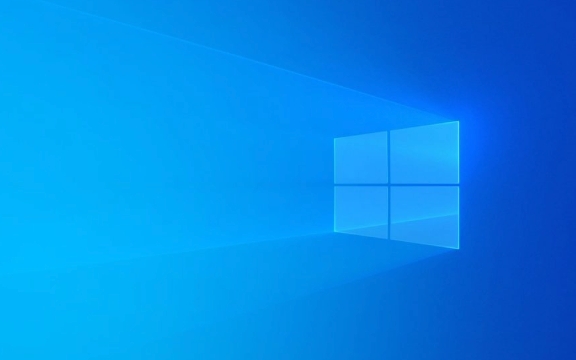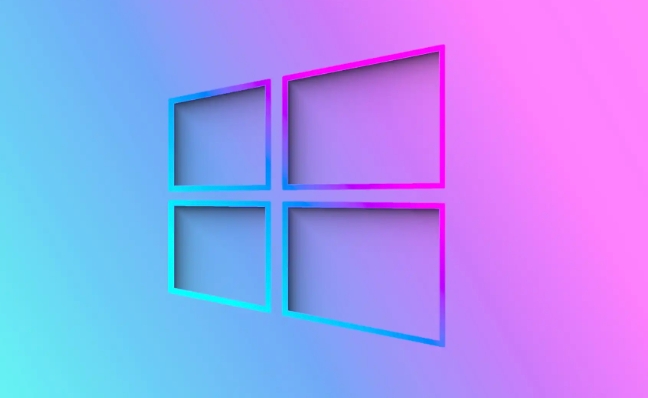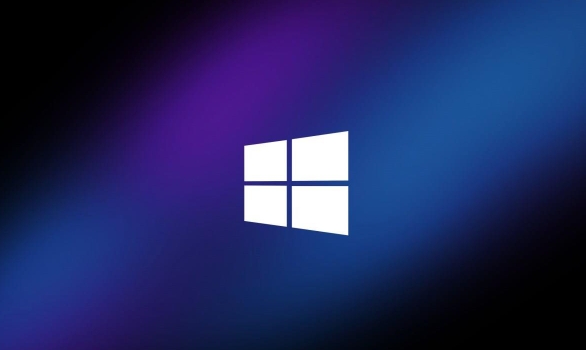Prepare your monitor by warming it up for 30 minutes, using consistent lighting, setting it to native resolution, and resetting to default neutral settings. 2. Use built-in OS tools: on Windows, follow the display calibration wizard to adjust gamma, brightness, contrast, and color balance; on macOS, use the Display Calibrate tool to set white point, gamma, and brightness. 3. For professional accuracy, use a colorimeter like X-Rite i1Display Pro or Datacolor SpyderX by attaching it to the screen, running the software, setting target values (white point 6500K, gamma 2.2, luminance 100–120 cd/m2), and letting it create an ICC profile. 4. Verify calibration using test images and physical references, maintain consistent ambient light, avoid extreme brightness, and recalibrate every 1–3 months to ensure ongoing accuracy. Calibrating regularly ensures reliable, true-to-life colors over time.

Getting accurate colors on your monitor is essential whether you're a photographer, designer, video editor, or just someone who wants true-to-life visuals. Over time, screen colors can drift due to aging hardware, ambient lighting, or factory settings that favor "pop" over accuracy. Calibrating your monitor helps ensure what you see is as close as possible to the real color values. Here’s how to do it effectively.

1. Prepare Your Monitor and Environment
Before calibration, set the stage for consistent results:
- Warm up your monitor: Turn it on and let it run for at least 30 minutes. This stabilizes the backlight and color output.
- Use consistent lighting: Calibrate in the environment where you normally work. Avoid strong direct light or changing daylight (like near a window).
- Set display to native resolution: Always use the monitor’s native (recommended) resolution for best results.
- Reset to default settings: If your monitor has presets (like “Vivid” or “Game”), switch to a neutral mode (often labeled “Standard” or “sRGB”) and reset any custom brightness/contrast settings.
2. Use Built-in OS Tools (Basic Calibration)
For casual users or those without a colorimeter, your operating system includes basic calibration tools.

On Windows:
- Open Settings > System > Display > Advanced display settings > Display adapter properties.
- Go to the Color Management tab > Color Management… > Calibrate display.
- Follow the wizard to adjust:
- Gamma: Aim for a smooth gradient where the circle blends into the background.
- Brightness and contrast: Use test patterns to set black levels and white point.
- Color balance: Adjust red, green, and blue sliders so grays appear neutral (not tinted).
On macOS:

- Go to System Settings > Displays > Color.
- Click Calibrate (you may need to press Option while clicking for advanced options).
- Follow the assistant to set white point (choose “Native” or “D65” for standard daylight), gamma (2.2 is standard), and brightness.
Note: These tools help, but they rely on your eyes and aren’t as accurate as hardware calibration.
3. Use a Colorimeter for Professional Accuracy
For true color fidelity, invest in a hardware calibrator like the X-Rite i1Display Pro, Datacolor SpyderX, or Calibrite ColorChecker.
Steps:
- Attach the colorimeter to your screen (it measures actual output).
- Run the calibration software provided with the device.
-
Set your target values:
- White point: 6500K (D65) for standard daylight.
- Gamma: 2.2 (standard for Windows/macOS and web content).
- Luminance (brightness): 100–120 cd/m2 for typical office use.
- Let the device measure multiple color patches and create an ICC profile.
- The software saves the profile to your OS, which applies corrections automatically.
Tip: Recalibrate every 1–3 months, especially if you do color-critical work.
4. Verify and Maintain Calibration
After calibration:
- Use test images (like Luther ColorChecker charts or grayscale ramps) to check neutrality and smooth gradients.
- Compare your screen to known physical references (e.g., printed photos under daylight).
- Keep ambient light consistent—sudden changes affect perceived color.
- Avoid extreme brightness settings; they distort color perception.
Hardware calibration is the gold standard, but even basic software tools are better than nothing. The key is consistency: regular checks and adjustments keep your monitor trustworthy over time.
Basically, calibrate early, calibrate often—and let accurate colors work for you.
The above is the detailed content of How to Calibrate Your Monitor for Best Color Accuracy. For more information, please follow other related articles on the PHP Chinese website!

Hot AI Tools

Undress AI Tool
Undress images for free

Undresser.AI Undress
AI-powered app for creating realistic nude photos

AI Clothes Remover
Online AI tool for removing clothes from photos.

ArtGPT
AI image generator for creative art from text prompts.

Stock Market GPT
AI powered investment research for smarter decisions

Hot Article

Hot Tools

Notepad++7.3.1
Easy-to-use and free code editor

SublimeText3 Chinese version
Chinese version, very easy to use

Zend Studio 13.0.1
Powerful PHP integrated development environment

Dreamweaver CS6
Visual web development tools

SublimeText3 Mac version
God-level code editing software (SublimeText3)
 How to Force Games Into Windowed Mode on Windows 10 & 11
Sep 19, 2025 am 03:33 AM
How to Force Games Into Windowed Mode on Windows 10 & 11
Sep 19, 2025 am 03:33 AM
Most players probably play their games full screen in Windows 11 or 10. However, you can also play games in a windowed mode. This mode lets you play games in a window with the taskbar visible beneath it. The advantages of playing in windowed mode
 How should I check if the computer suddenly fails to recognize the printer?
Sep 20, 2025 am 08:27 AM
How should I check if the computer suddenly fails to recognize the printer?
Sep 20, 2025 am 08:27 AM
Answer: The computer cannot recognize the printer. It is usually caused by connection, drive, or service issues. First check whether the USB or network connection is normal to ensure that the printer is powered on; if the connection is correct, restart the device and check the driver status in the "Device Manager", update or reinstall the official website driver; confirm that the Windows "PrintSpooler" service has been started and set to automatic; use the system "Troubleshooting" tool to troubleshoot problems. If the driver fails to install repeatedly, you need to completely uninstall the old driver and clean up the residual files. After restarting, install the new version of the driver as an administrator, and use compatibility mode or system restore if necessary. If there is any problem after Windows update, you should first download the driver that is adapted to the new system, or roll back the update and check the service status. The details that are easily overlooked during the investigation include
 The folder or file has been opened in another program
Sep 20, 2025 am 08:24 AM
The folder or file has been opened in another program
Sep 20, 2025 am 08:24 AM
When the file is occupied, first check and close the relevant programs and try to restart the computer; if it is invalid, use task manager, resource monitor or ProcessExplorer to locate the occupied process, and forcefully terminate it by ending the task or taskkill command; for prevention, you need to develop good operating habits, avoid previewing or directly operating on mobile/network drives, and keep software updated.
 VPN Not Connecting on Windows 10/11 : 10 Best Fixes
Sep 20, 2025 am 03:30 AM
VPN Not Connecting on Windows 10/11 : 10 Best Fixes
Sep 20, 2025 am 03:30 AM
A Virtual Private Network (VPN) is a crucial tool for safeguarding your online privacy and securely accessing geo-restricted or censored content. However, many users face difficulties when their VPN fails to connect on Windows 10 or Windows 11.Why Wo
 How to uninstall a program that won't uninstall
Sep 20, 2025 am 07:09 AM
How to uninstall a program that won't uninstall
Sep 20, 2025 am 07:09 AM
Ifaprogramwon’tuninstall,trythesesteps:1.UseWindowsSettingstoremoveit.2.Runitsbuilt-inuninstallerasadministrator.3.BootintoSafeModeandattemptremoval.4.Usethird-partytoolslikeRevoUninstaller.5.Manuallydeletefilesandregistryentrieswithcaution.
 Where to find folders
Sep 20, 2025 am 07:57 AM
Where to find folders
Sep 20, 2025 am 07:57 AM
The most direct way is to recall the storage location, usually in folders such as desktop, documents, downloads, etc.; if it cannot be found, you can use the system search function. File "missing" is mostly due to problems such as unattention of the saving path, name memory deviation, file hiding or cloud synchronization. Efficient management suggestions: Classify by project, time, and type, make good use of quick access, clean and archive regularly, and standardize naming. Windows search and search through File Explorer and taskbar, while macOS relies on finder and Spotlight, which is smarter and more efficient. Mastering tools and developing good habits is the key.
 What factors really determine the read and write speed of mechanical hard disks?
Sep 20, 2025 am 08:18 AM
What factors really determine the read and write speed of mechanical hard disks?
Sep 20, 2025 am 08:18 AM
The read and write speed of mechanical hard disks is determined by the speed, data density, cache size, interface type and seek time. High speed shortens latency, high density improves linear speed, large cache optimizes random read and write, while fragmentation and background programs slow down the actual experience.
 My Windows 11 Laptop Now Lasts All Day Thanks to These Tricks
Sep 21, 2025 am 04:27 AM
My Windows 11 Laptop Now Lasts All Day Thanks to These Tricks
Sep 21, 2025 am 04:27 AM
The battery life of Windows laptops has never been excellent, at least without making any settings. But with these tips, your laptop can easily run 24/7 – no longer have to look for power outlets everywhere. 5 Check your GPU settings The standalone graphics card consumes much more power than integrated graphics cards. This is one of the reasons for the performance improvements in gaming, but it also greatly reduces battery life. If your laptop supports MUX switches or allows disabling discrete graphics cards, turning on this feature will significantly extend battery life. Some notebooks offer two GPU modes: hybrid mode and integrated mode. In hybrid mode, both graphics cards work at the same time, which is also the default operation method of most laptops with independent graphics. If you want to extend the battery




